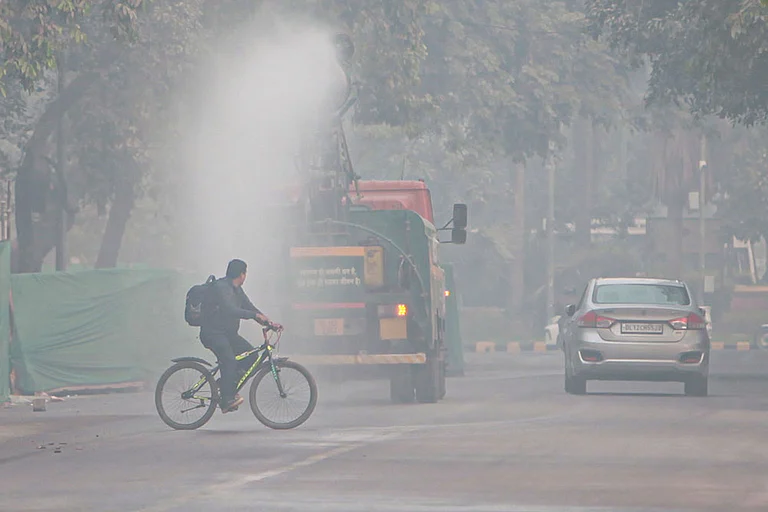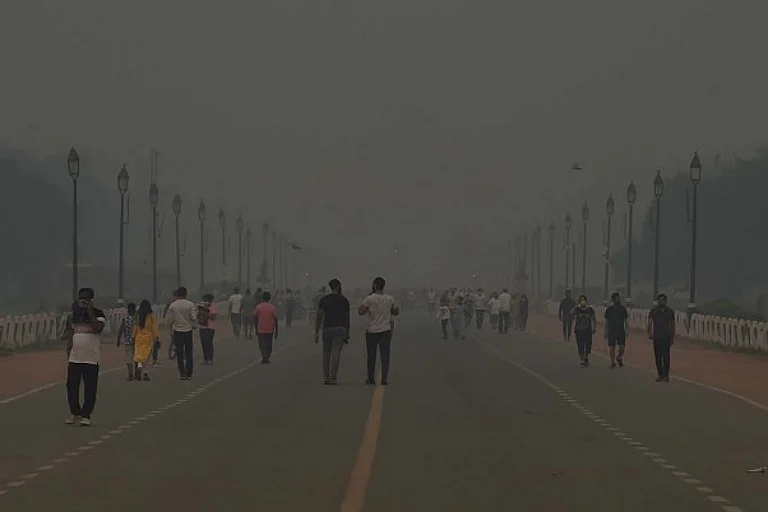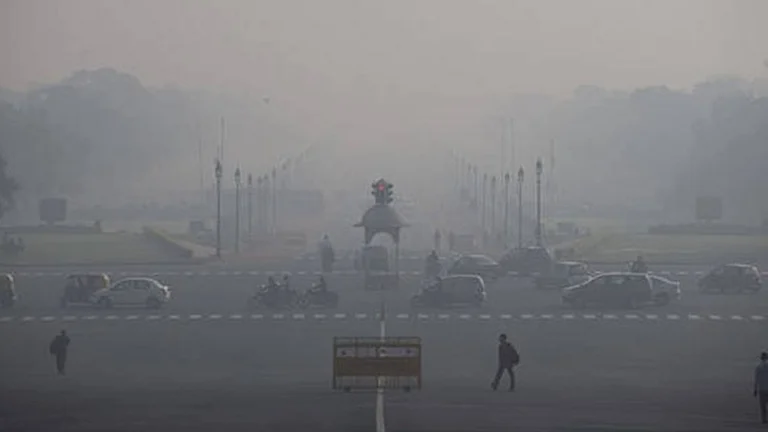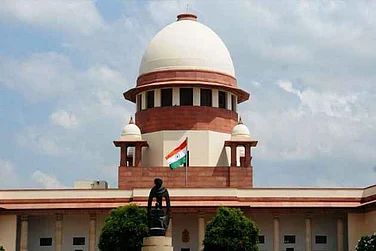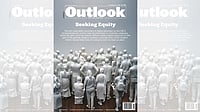As the pollution levels soar in Delhi, the climate experts at the ongoing COP29 summit urged India to work on reducing short-lived climate pollutants (SLCPs).
SLCPs are air pollutants and greenhouse gases like methane, black carbon, ground-level ozone, and hydrofluorocarbons (HFCs). These are considered major contributors to both air quality degradation and global warming.
The suggestions came from Zerin Osho, Director of the India Programme at the Institute for Governance & Sustainable Development (IGSD) and Durwood Zaelke, President of IGSD, who highlighted that SLCPs account for nearly half of current warming and offered the quickest path to cooling.
“If we address SLCPs, we can achieve fast cooling effects and buy critical time to mitigate longer-term CO2 emissions,” Zaelke told PTI.
Talking to the news agency Osho said SLCPs pose risk to India’s economic and environmental stability. Rising temperatures have had pronounced effects on the informal labour sector, agriculture, and food security.
PTI quoted Osho referring to World Bank findings showing that India’s informal sector lost an estimated 34 million jobs due to extreme heat — a situation exacerbated by SLCPs.
Moreover, changing monsoon patterns, which SLCPs partially influence, disrupt crop cycles and threaten food security domestically and abroad.
Delhi AQI in severe zone: Day 2
Delhi continues to grapple with thick layers of smog blanketing the city on Thursday morning while the Air Quality Index (AQI) remains under the 'severe' category for a second consecutive day.
According to the Central Pollution Control Board (CPCB), the Anand Vihar region of the city recorded an AQI of 470 at 9 AM on Thursday.

A day before, Delhi hit the "severe" category for the first time this season when the 24-hour AQI, recorded at 4 pm every day, stood at 418.
Low visibility, flight ops hit
Low visibility affected regular flight operations in Delhi and its adjacent cities on Thursday. Citing flight tracker website Flighradar 24, NDTV reported that over 300 flights have been delayed at the Delhi Airport.
As per the report, visibility at Indira Gandhi International (IGI) Airport dropped to 500 meters this morning while Amritsar and Pathankot airports in Punjab reported zero visibility.
Urging passengers to stay updated with their flight status as some of them might be delayed, IndiGo today posted a travel advisory on social media X (formerly Twitter).
“This morning, winter fog may impact flights to/from Amritsar, Varanasi & Delhi. Do keep a tab on your flight status before heading to the airport. Also, please allow additional travel time as road traffic may move slower than usual due to low visibility. Thank you for your patience, and we wish you a smooth journey”, the advisory read.
While transportation is the biggest contributor to increasing levels of pollution, farm fires due to stubble burning has become another major factor to take into account.
Stubble burning in Punjab and Haryana after harvesting the paddy crop in October and November is often blamed for Delhi's rise in air pollution.








